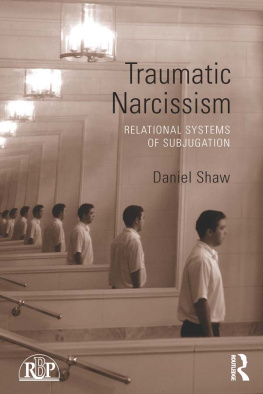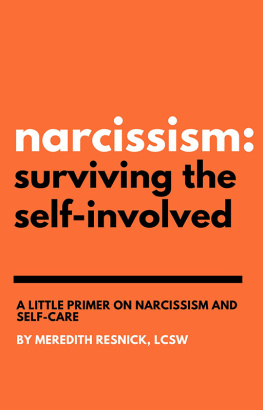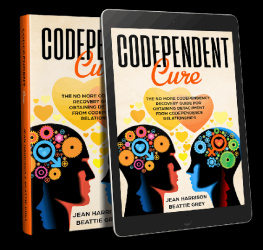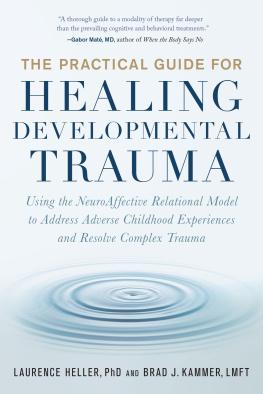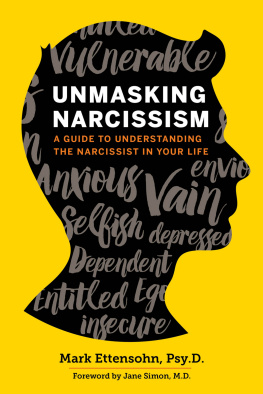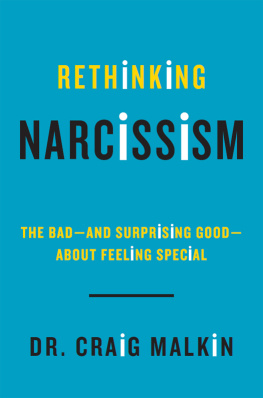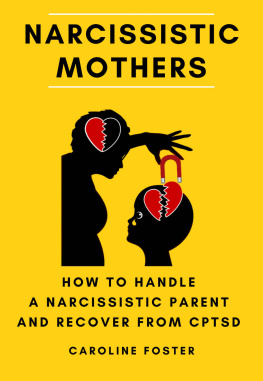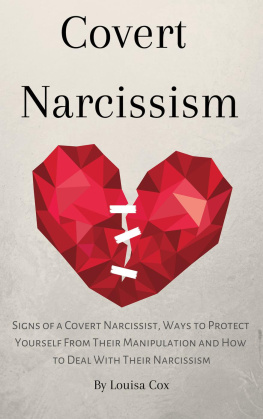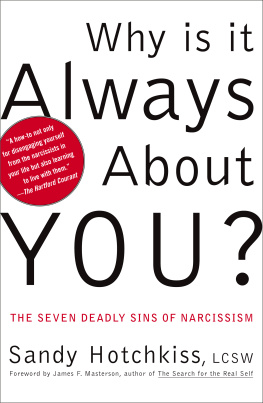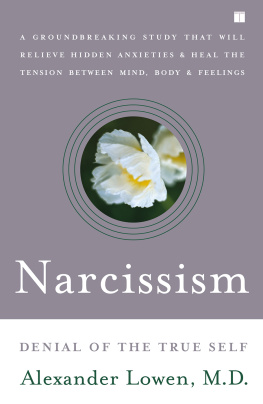Traumatic Narcissism
Relational Systems of Subjugation
Daniel Shaw
First published 2014
by Routledge
711 Third Avenue, New York, NY 10017
Simultaneously published in the UK
by Routledge
27 Church Road, Hove, East Sussex BN3 2FA
Routledge is an imprint of the Taylor & Francis Group, an informa business
2014 Taylor & Francis
The right of Daniel Shaw to be identified as author of this work has been asserted by him in accordance with sections 77 and 78 of the Copyright, Designs and Patents Act 1988.
All rights reserved. No part of this book may be reprinted or reproduced or utilised in any form or by any electronic, mechanical, or other means, now known or hereafter invented, including photocopying and recording, or in any information storage or retrieval system, without permission in writing from the publishers.
Trademark notice: Product or corporate names may be trademarks or registered trademarks, and are used only for identification and explanation without intent to infringe.
Library of Congress Cataloging in Publication Data
Catalog record for this book has been applied for
ISBN: 978-0-415-51024-0 (hbk)
ISBN: 978-0-415-51025-7 (pbk)
ISBN: 978-1-315-88361-8 (ebk)
Typeset in Times
by Apex CoVantage, LLC
Contents
One day, more than a decade ago, I answered the phone at my office and a woman introduced herself to me. Victoria had read an essay I had written, published in the Cultic Studies Review and online, entitled Traumatic Abuse in Cults (Shaw, 2003b). She wanted me to know that she had studied narcissism for many years, though she was not a mental health professional. I learned that she is the daughter of a traumatizing narcissist mother, with an equally traumatizing narcissist stepfather, who had wealth and position and were extraordinarily neglectful and abusive to their children. Additionally, as a young woman she had been abused by and testified in court against a notorious guruone of the very small number of victims of sexual abuses in religious groups other than the Catholic Church to speak out. She told me that I had explained something in my paper about narcissism that she had never really come across. She was referring to how I had used the example of a narcissist guru as someone who needed to believe that he was completely free, dependent on no onethe kind of narcissist who exploits and controls others, inflating himself by deflating those he surrounds himself with. I was arguing in this paper that he needs others desperately, but that he disavows dependency, which he views as weak and shameful. He needs to lure others into becoming dependent on him, which then allows him to persist in his delusion that only others are needy, not himself. As a result of his developmental trauma connected to dependency, he externalizes dependency, and with it, shame. Dependency and shame are repugnant weaknesses in his eyes, problems for his inferior followers, not for superior him. My new friend on the phone, Victoria, surprised me with her impressive grasp of the vast psychoanalytic literature, and I was very pleased to hear that she had found something new and meaningful in what I had written.
I had already received recognition for this particular paperaside from its publication in a journal specifically geared to the ex-cult community, it was available on the internet and had been averaging 300 hits monthly for several years, had been translated into five languages, and had been used for a number of different college classes. However, what Victoria said led me to begin thinking about how I could present my ideas to my colleagues in the psychoanalytic community.
In Traumatic Abuse in Cults I defined a cult as a group that is led by a traumatizing narcissist, in which members are subjugated by the leader in various ways, mainly through the destruction of their subjectivitytheir objectification. Only the leader's subjectivity is given validity in a cult; members are allowed validation only at the guru's whim, and only to the extent that they comply and submit as specified by the guru. My ideas about cults developed throughout my social work and psychoanalytic training, in the years following my own involvement with a religious group led by a guru for whom I had worked full-time for more than ten years. It was out of the literally hundreds of conversations I had with people who identified as former cult members in the first five years after I severed my ties with this guru that I began to develop the concept I present herethe relational system of the traumatizing narcissist.
I knew from the beginning of my effort to construct a psychoanalytic perspective on cults that this relational dynamic was not unique to cultsthat in fact, it could be recognized in any relationship between significant others. My first analytic supervisor, the late Valerie Oltarsh, had suggested at the very beginning of my training that I read Prisoners of Childhood by Alice Miller (1981)the classic book about narcissist parents and how their children are traumatized. Much of what I read there confirmed what I had come to understand about my relationship with my ex-guru; what I had witnessed and experienced as a follower of this guru fell at the extreme end of abusiveness. By contrast, my family of origin, for all our difficulties, had been a far more benign environment.
As my analytic training progressed, I read voraciouslyfirst Kohut, then Winnicott, Fairbairn, Balint, and eventually Ferenczi and Frommamong many others of the analytic forebears. Soon the contemporary relational theorists beckoned to me, and Mitchell, Aron, Benjamin, Ghent, Harris, Hoffman, Bromberg, Daviesand many othersinfluenced me deeply. The common theme of all the authors I was drawn to was, in a word, relationality. The more I sought to make use of the relational sensibility in my work and in my life, the more I became acutely aware of the narcissistic bubble my prior so-called spiritual life had occupied.
So the study of relationality led me to the study of narcissism. What I read spoke mostly of narcissism as either healthy or pathological, with the pathological aspects viewed as innate, arising from genetic disposition more than environment. In Kohut's work (1984) I found more understanding of how environment played a role in narcissism, but I still wondered: What about the kind of narcissism that led a person to believe they were omnipotent, and thereby entitled to dictate the terms of other people's lives? What of those people (such as I had been) who submit themselves to such dictatorial contol? Most psychoanalytic case reports that spoke of a patient's narcissism seemed to me to be talking about people who had been traumatized by a narcissist; their trust in others and in themselves had been battered, often from within their families. These patients often showed narcissistic featuresunstable self-esteem in two modes, either grandiose superiority or selfloathingbut once their family of origin histories were elaborated, a parent or parents, grandparents or siblings were invariably discovered who were over-inflated narcissists (Bach, 1985, 1994, 2006). It made sense to me to think of this kind of abusing other as pathologically narcissisticbut was the tormented, depressed patient in my office who told me of these traumatic abuses also supposed to be thought of as pathologically narcissistic?
I take this theme up in
In , the traumatizing narcissist concept is further elaborated, and the concept of the complementary moral defense, a relational elaboration of Fairbairn's moral defense concept, is introduced. The chapter begins with a study of the life of the playwright Eugene O'Neill, whose play

